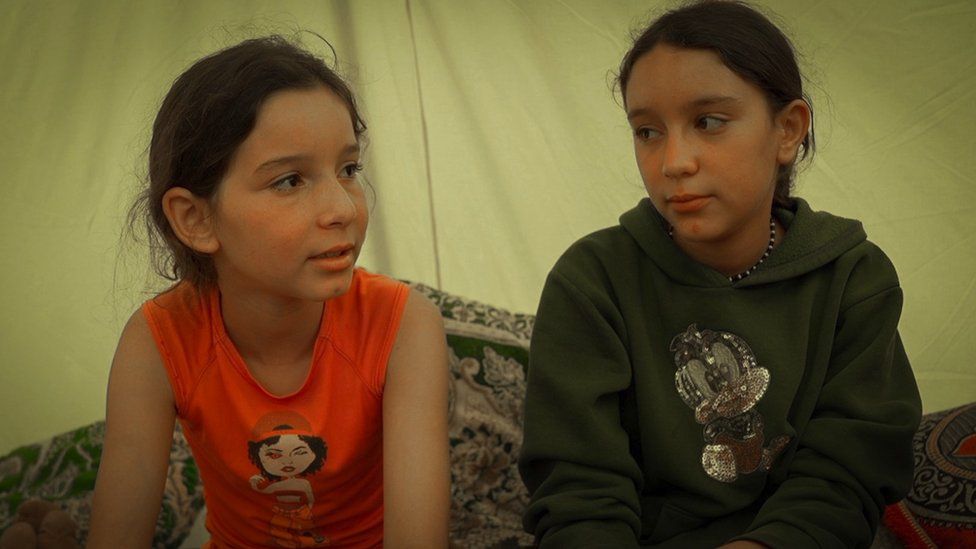-

-
-
Loading

Loading

12-year-old Malak, who dreams of becoming a dentist, is struggling to adjust to her new life after a devastating earthquake struck Morocco two weeks ago. Along with many other children in the High Atlas Mountains, she is now forced to live in a makeshift tent. Malak is the oldest of four siblings, none of whom are able to attend school as their hometown of Amizmiz was destroyed in the earthquake. The earthquake, which had a magnitude of 6.8, was the strongest to hit Morocco in over 60 years, causing the death of over 2,900 people and injuring over 5,000 others. Many remote villages were severely affected, with more than 50,000 homes destroyed. Aid efforts have been hindered by blocked roads due to landslides caused by the earthquake. The situation in Amizmiz is dire, with families living in flimsy tents that offer little protection. As winter approaches, the lack of proper shelter becomes a pressing concern. Malak and her family, like many others, are in desperate need of food, money, and a new home. Malak is especially worried about the impact of the earthquake on her education and future prospects. She has a deep desire to become a dentist and hopes to repay her mother for the sacrifices she has made for her and her siblings. The emotional toll of the earthquake is evident in Malak's younger sister, Doaa, who aspires to become an architect. Doaa is traumatized by the earthquake and experiences nightmares and fear. Many children in the area have similar experiences, and the UN children's agency, Unicef, reports that nearly 100,000 children have been affected by the earthquake. Unicef warns that aftershocks are expected to continue, posing a further risk to children and their families. Life in the camp is challenging for families like Jamila's, who are struggling to meet their basic needs. Aid supplies are being distributed by volunteers, but the lack of proper sanitation facilities is a significant concern. Many families in the camp were already living in poverty before the earthquake, and their situation has only worsened. Children, like 10-year-old Ikhlas, are deeply affected by the destruction. Ikhlas recounts the night of the earthquake, during which she sought safety with her father and recited verses from the Quran. She and her peers miss their school and long to see their teachers and friends again. The request for lipstick or perfume from one woman highlights the need for more than just food and blankets in aid packages. Toiletries and cosmetics are rarely included, but they contribute to a sense of dignity and humanity for those affected by the earthquake. While the Moroccan authorities have pledged substantial funds for reconstruction, no concrete timeline has been provided, and the country has been selective in accepting foreign aid. Local volunteers emphasize the importance of addressing the mental health of victims, particularly children. Some volunteers have set up a tent where children can express their trauma through drawing and writing, as a way to cope with the aftermath of the earthquake. However, it will take time for their wounds to heal.